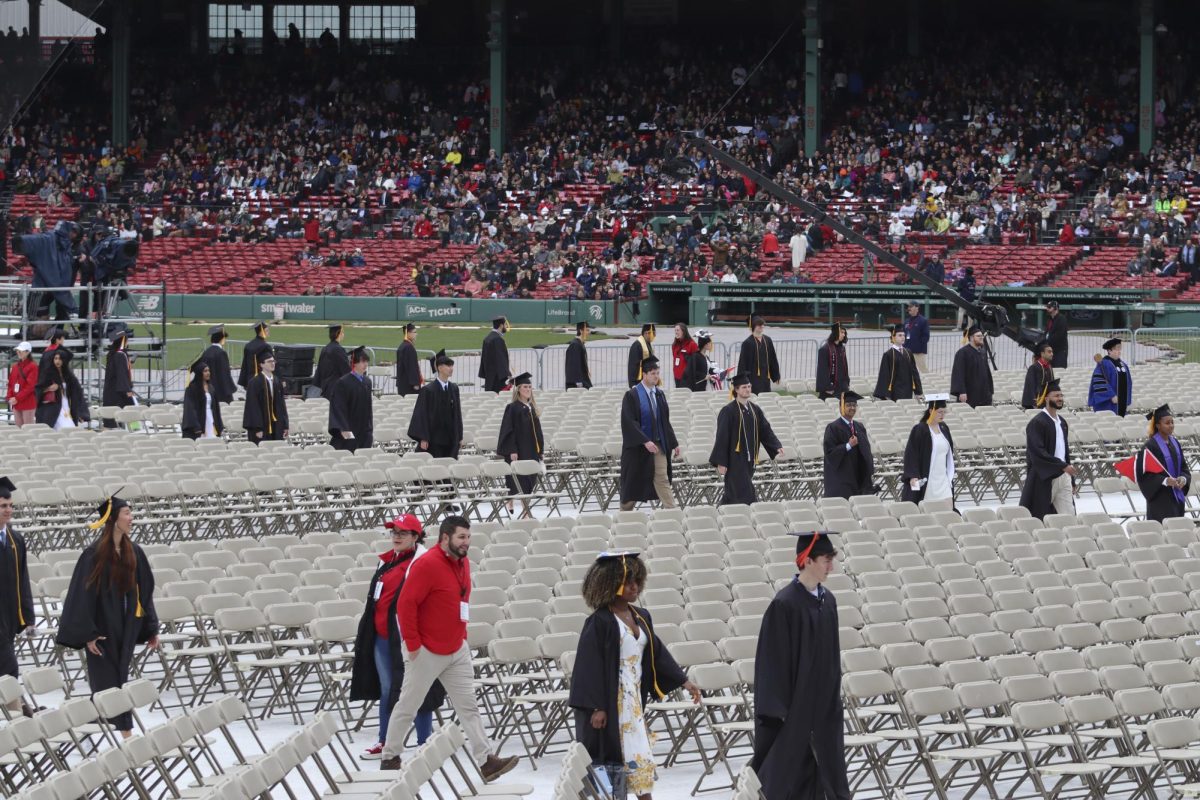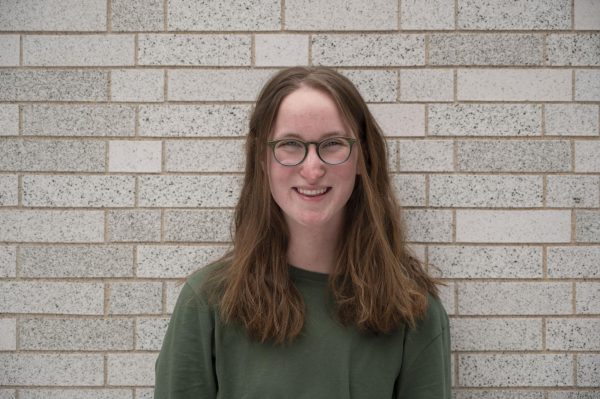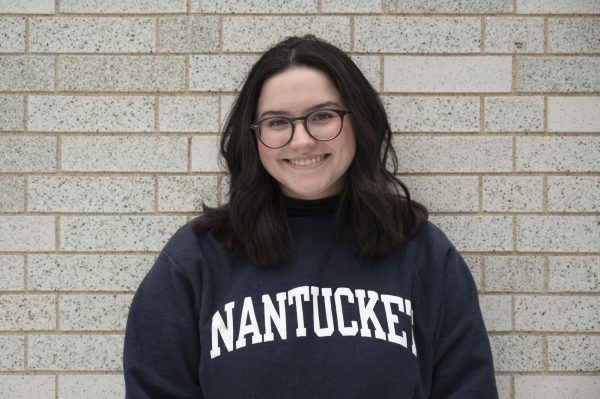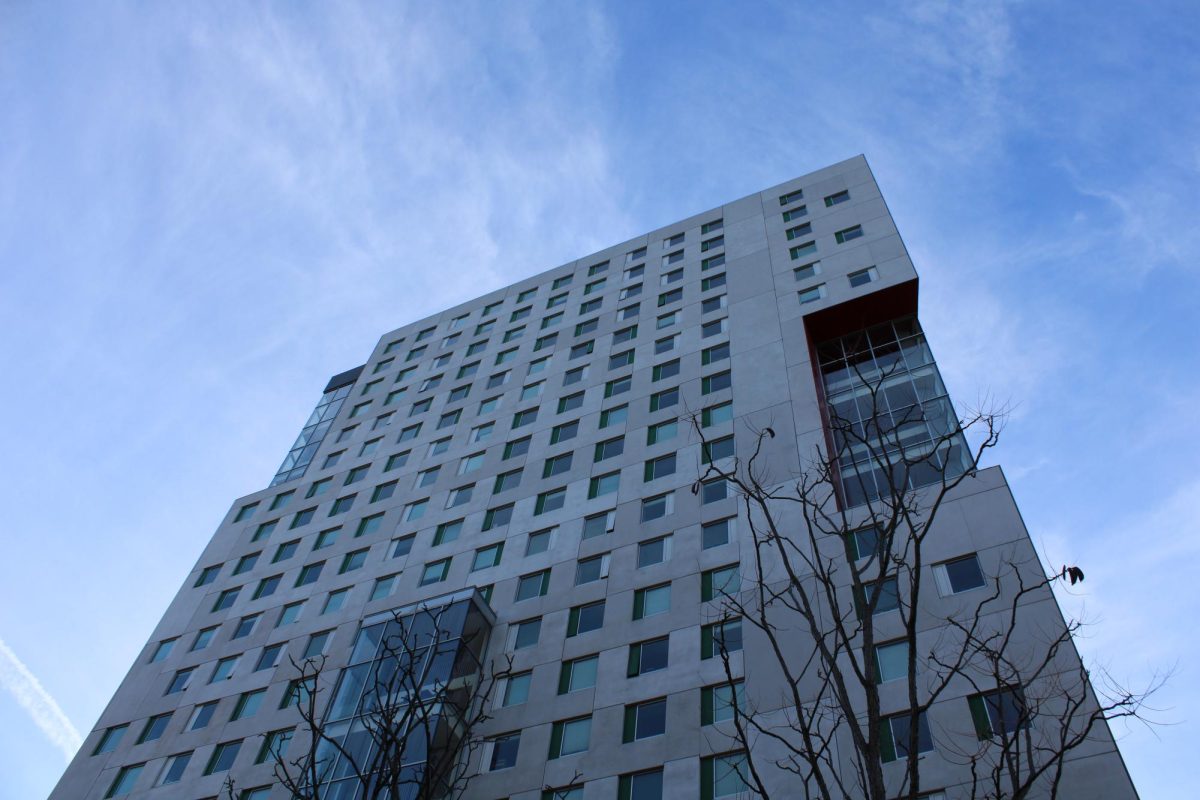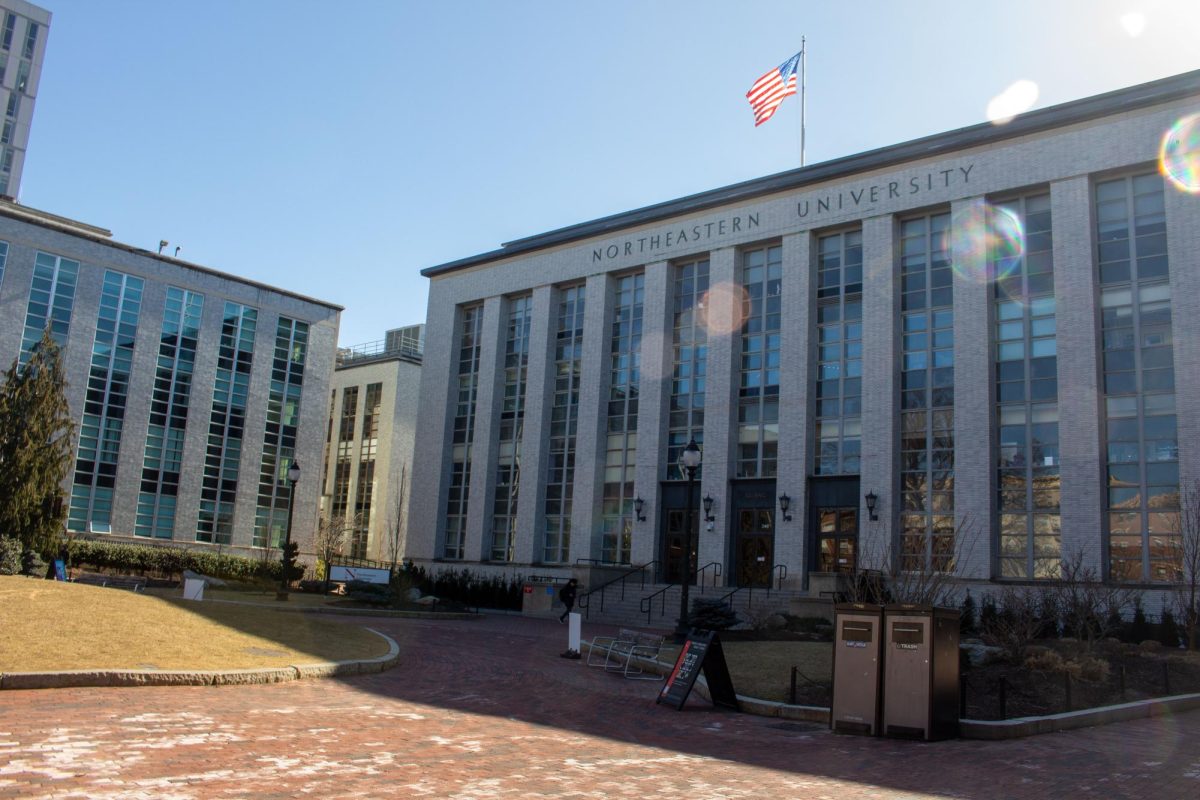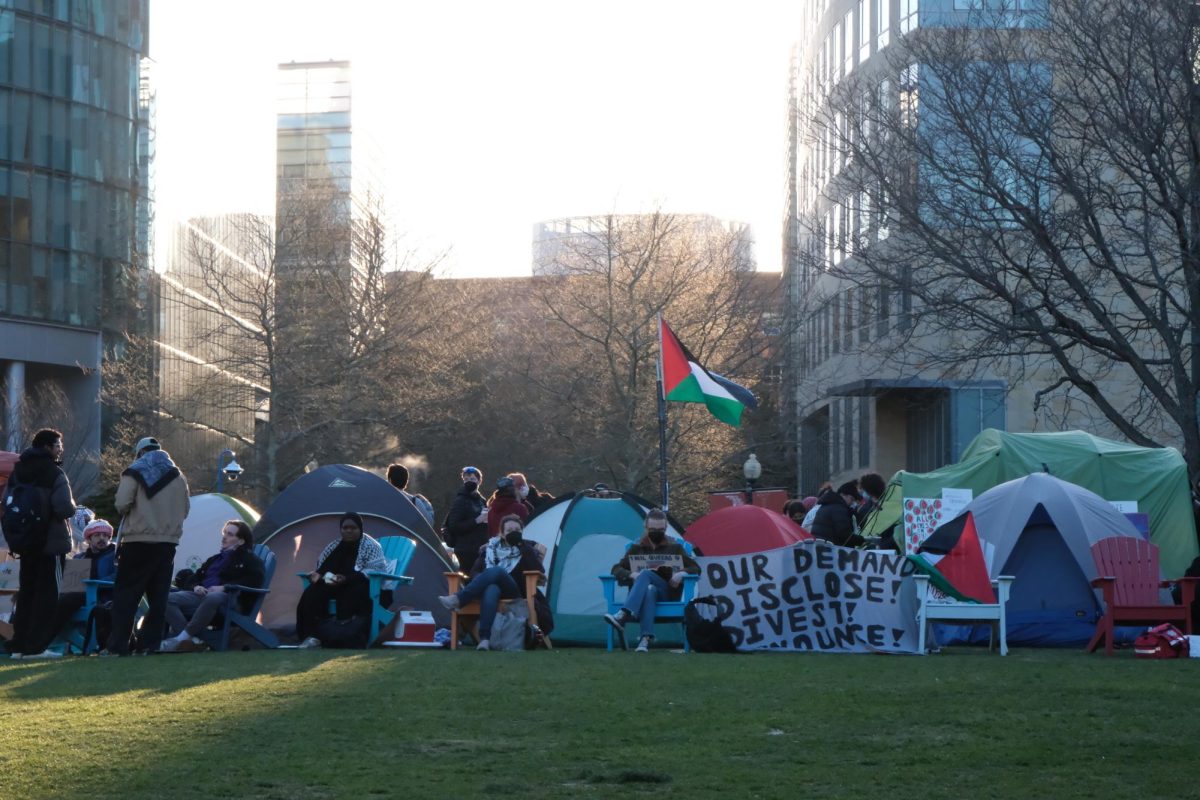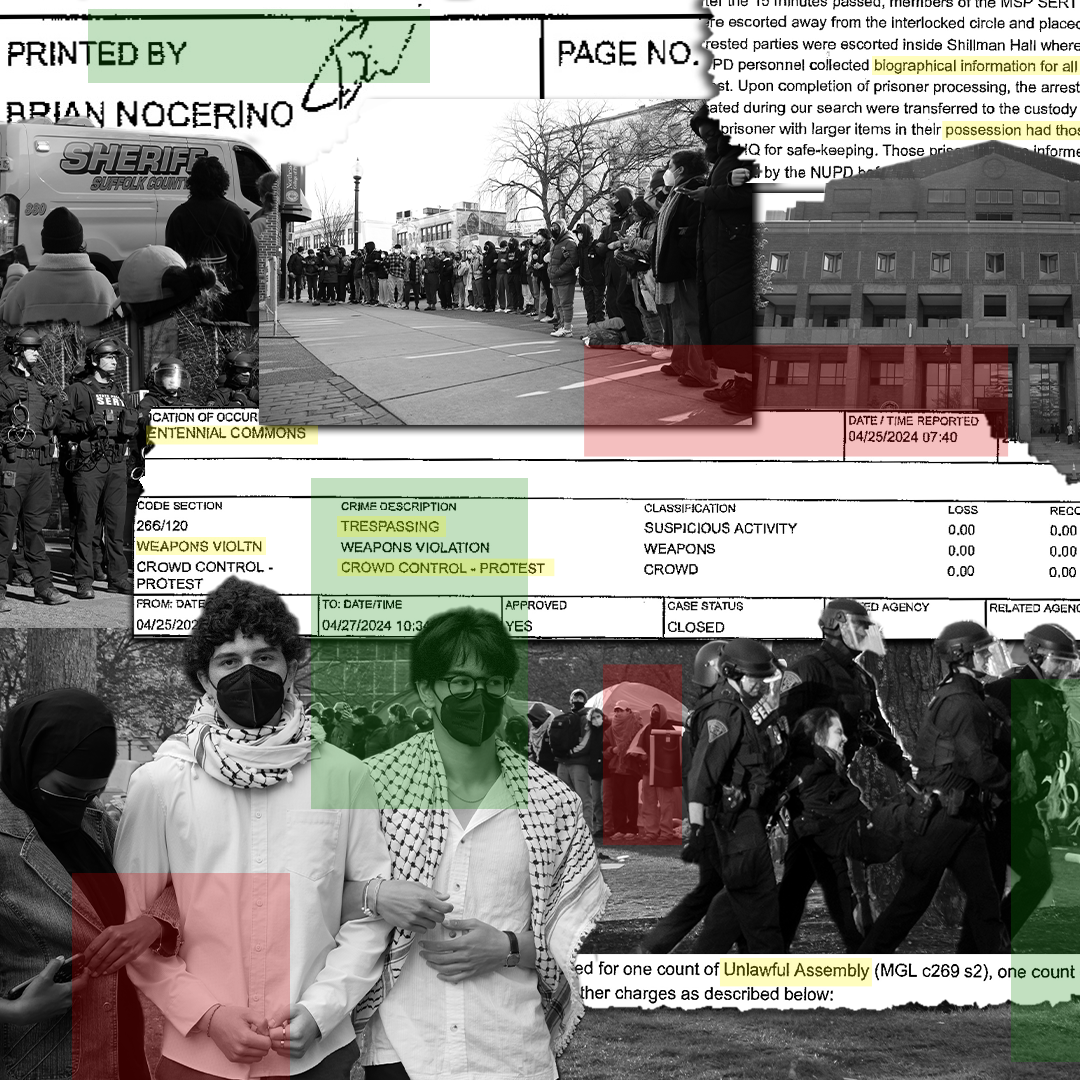On an overcast Sunday afternoon, 4,000 members of the class of 2024 gathered as family and friends filled the Fenway Park stands to celebrate Northeastern’s spring undergraduate commencement.
Graduates wore decorated caps and many waved various countries’ flags, including a notable number of Palestinian flags, which student activists distributed to graduates outside of Fenway Park before the ceremony.
The majority of students in this graduating class began college during the 2020 COVID-19 lockdown, which several speakers highlighted in their speeches. During their freshman year at Northeastern, these students were required to test in the Cabot Center for the virus every three days.
“You are a special class that largely had to choose your college before even seeing it,” President Joseph E. Aoun said to the crowd. “You took a bet on Northeastern, and Northeastern took a bet on you. The year you arrived here was tough. Your lives revolved around Cabot, quarantines and QR codes.”
Before Aoun took the stage, undergraduate student speaker Rebecca Bamidele, a biology and political science combined major and 2024 College of Science graduate, addressed the crowd. She said her time at Northeastern transformed her from a “shy” person trying to blend in into someone who wants to stand out — “a girl who walks around Boston in bedazzled knee-high boots on a Tuesday just for the sake of turning heads.”
“When I first came to Northeastern, like many college freshmen, I struggled,” Bamidele said. “Feeling adrift on a campus of 15,000, I worried about becoming somebody to anybody. What I didn’t know back then was that as much as I was worried about shaping Northeastern, somewhere along the way, Northeastern was shaping me.”
Bamidele stepped away from the podium to reveal a pair of knee-high bedazzled boots, earning cheers from the crowd.
She then went on to talk about how her Moral and Social Problems in Healthcare course inspired her to probe global health crises, highlighting the ongoing war in Gaza, where roughly two out of three dozen total hospitals have been destroyed as a result of the Israeli government’s attacks, and the healthcare system crisis there.
“As Northeastern graduates, we are empowered to demonstrate the true meaning of global citizens, serving as catalysts for change around the world as we prepare to go forth into it,” she said.
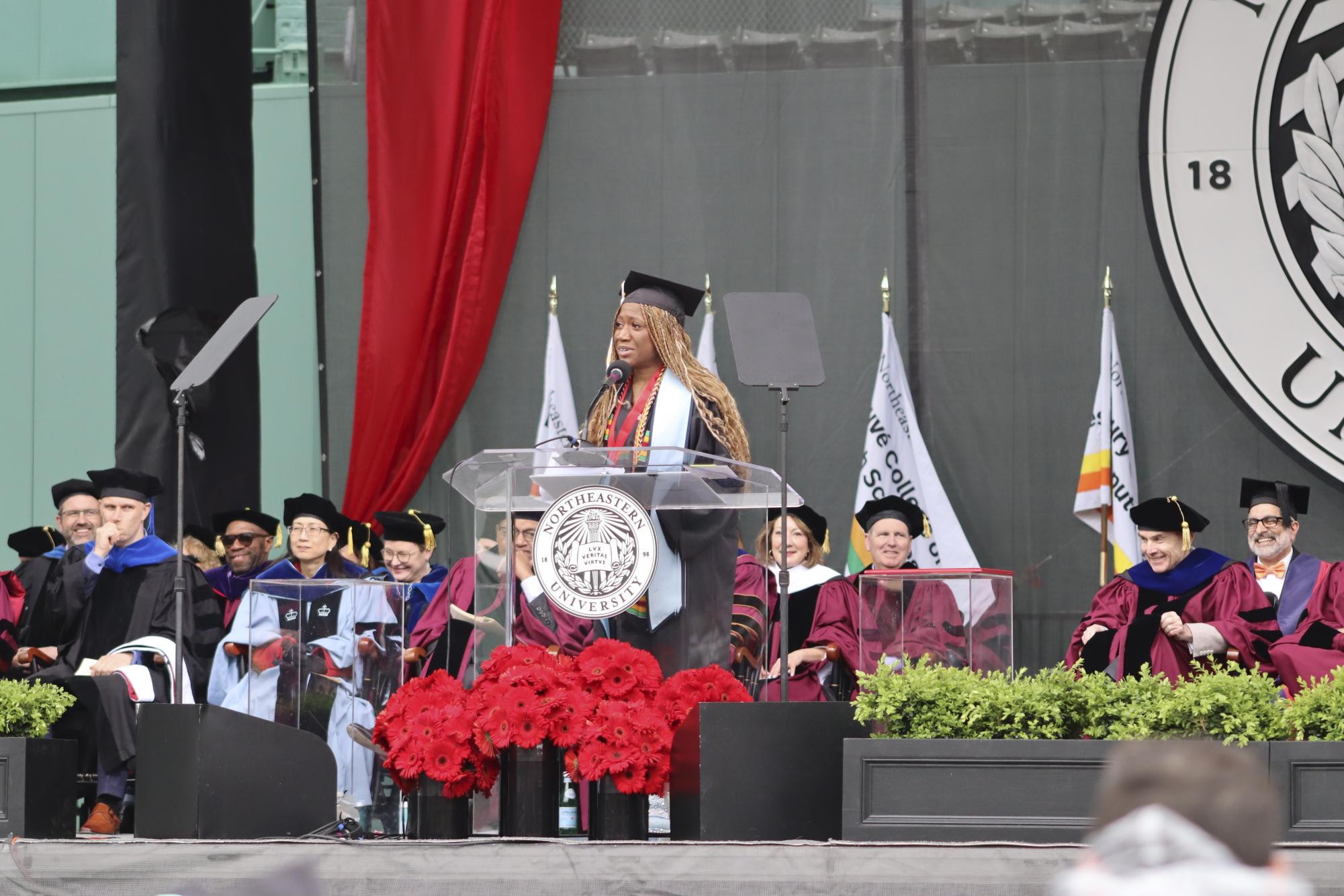
Commencement speaker David A. Thomas, president of Morehouse College in Atlanta, took the stage after Bamidele. Northeastern awarded Thomas an honorary doctorate of humane letters.
Aoun invited Thomas to speak after NASA astronaut and space shuttle commander Pam Melroy, who was originally selected to be the commencement speaker, could not attend due to illness, the school said.
Thomas is widely recognized for his work in higher education leadership and organizational management. He has previously served as a professor at Harvard Business School, dean and William R. Berkley Chair at Georgetown University’s McDonough School of Business, and assistant professor at the Wharton School of Business at the University of Pennsylvania before becoming president of Morehouse in 2018.
Before Thomas received his degree, a student wearing a keffiyeh whose cap was painted with the Palestinian flag rose and began swiftly walking towards the stage. The individual and several others could be heard chanting, “Aoun, Aoun, you can’t hide. You are funding genocide.”
The individual was apprehended and arrested by two Northeastern University Police Department officers just before they reached the stage, the university said in a statement to The News Sunday.
Thomas began his speech by underscoring the uniqueness of Morehouse and Northeastern, which he said are “distinct at what they do best.” Morehouse is classified as a historically Black college and university and a “leading college educating Black men” while Northeastern says it is the “world leader” for experiential learning.
“Northeastern’s distinctive competencies in experiential education is focused on bringing together theory and practice,” Thomas said. “There’s more demand for what makes Northeastern unique than there has ever been because they provided a light. At Morehouse, we have a phrase: ‘We are a candle in the dark.’ In that way, we are [a] sister to Northeastern.”
Like Aoun and Bamidele, Thomas addressed the unprecedented nature of these graduates’ college experience due to COVID-19 and the Black Lives Matter movement, which gained worldwide attention after the murder of George Floyd.
“Today we see a world challenged by war, by antisemitism, by Islamophobia, by climate and inequality, by the three threats to democracy that Dr. King identified: militarism, poverty and -isms that alleged that are lodged to justify the injustices of the world, such as racism, but there are many of them,” he said. “Yet, out of this period, Northeastern has emerged stronger.”
Thomas emphasized that the main themes of his speech were dreams, purpose, failure and humanity. He recounted some of the highs and lows of his own career.
“The highest purpose of education is not the completion of post-secondary or even post-college degrees,” he said. “The highest purpose of education is to create individuals prepared to protect the humanity of those on the planet who understand that we are all connected in our humanity.”
Thomas capped his speech with words of encouragement: “You are about to step out into a world that needs you greatly,” he said. “You will shape the 21st century.”
Deans of each college then confirmed graduates’ degrees, beginning with Dean of the College of Engineering, Gregory D. Abowd, leading graduates in doing the wave as heavy rain fell. Abowd called the rain “tears of joy.”
After degrees were confirmed, the Nor’easters, a campus a cappella group, led a performance as dancers filled the aisles between graduates. Once the president’s procession left the stage, graduates tossed their caps as rain continued to fall in a show of tradition and celebration.









